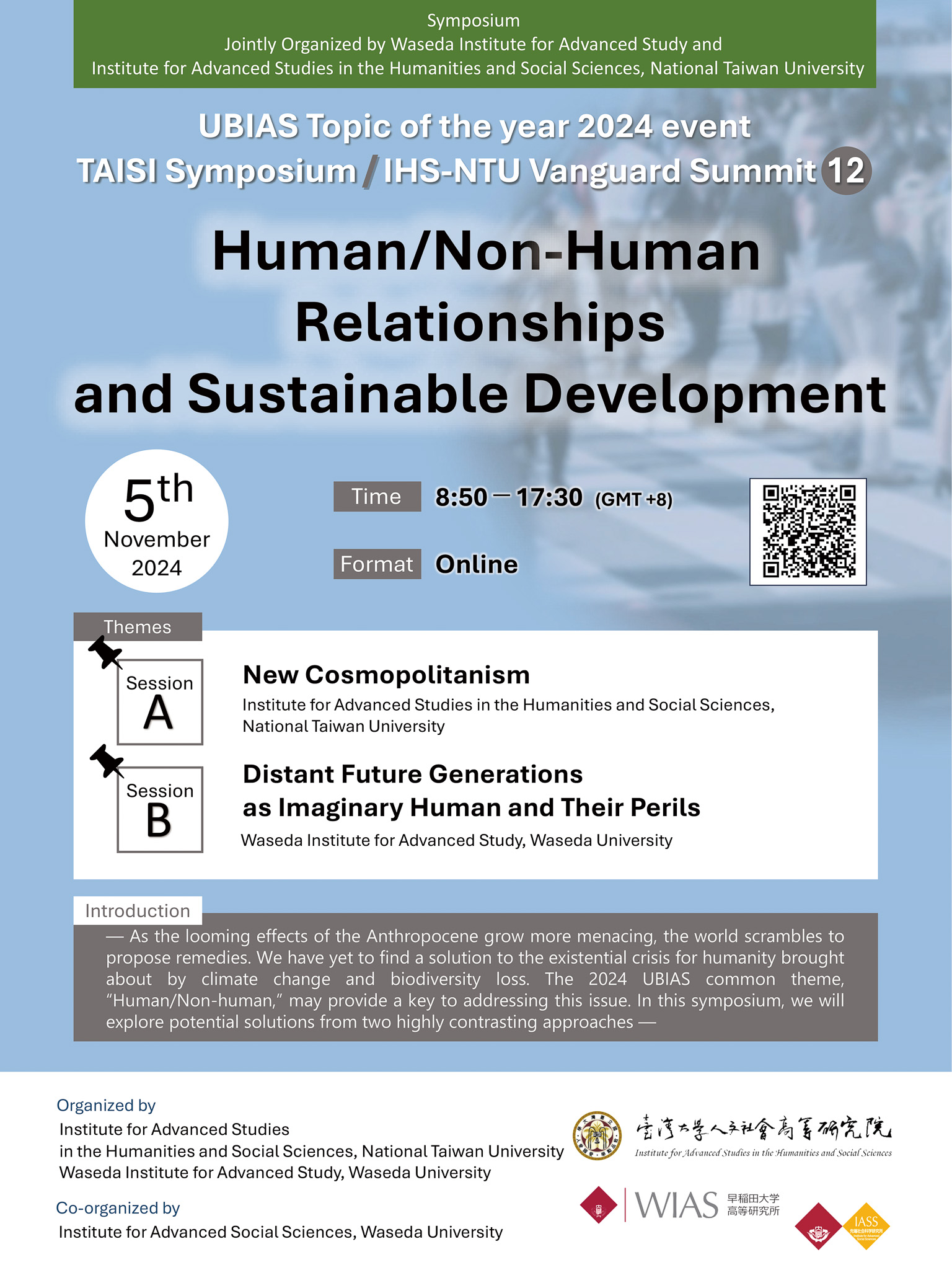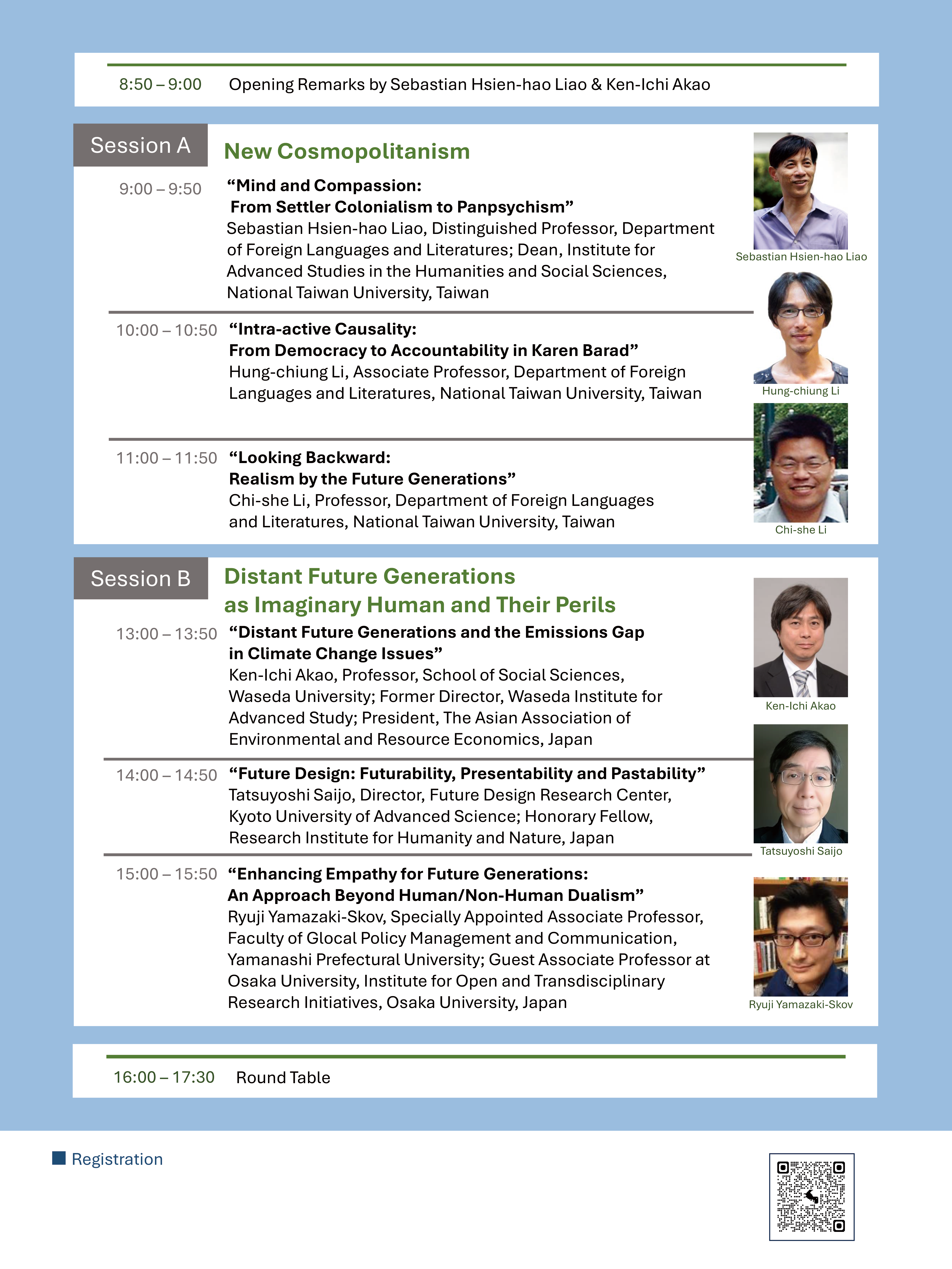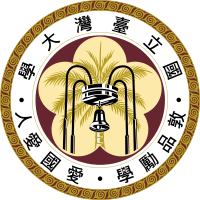【高峰論壇系列十二】Human/Non-human Relationships and Sustainable Development


日期:2024年11月5日(二)
時間:08-50 – 17:30 (GMT+08)
進行方式:ZOOM網路研討會
報名連結:https://list-waseda-jp.zoom.us/webinar/register/WN_xN24KDXnRFuQd7gy6DGC8A
主題:
Human/Non-human Relationships and Sustainable Development
演講摘要:
As the looming effects of the Anthropocene grow more menacing, the world scrambles to propose remedies to the existential crisis for humanity brought about by climate change and biodiversity loss. The 2024 UBIAS common theme, "Human/Non-human," may provide a key to addressing this issue. In this symposium, we will explore potential solutions from two apparently contrasting but in fact mutually complementary approaches.
In the first part, as a radical approach to the issue, we will delve into its roots: the anthropocentrism deeply embedded in Western cultures, where the idea of the Great Chain of Being has changed little except replacing God with Man at the top of the hierarchy. The fact that animal rights advocates prioritize animals that exhibit empathy toward humans, for instance, lends evidence to this unyielding anthropocentrism. Consequently, what we are in dire need of is a "flat ontology" that does not forsake human accountability—one that reorients the human-nonhuman relationship not by treating the nonhuman as merely necessary for human survival, but by recognizing that all beings have equal rights to exist on this planet. A key issue in this reorientation involves the relative value of the myriad entities, a subject that is critical to the extent to which de-anthropocentrism can be pursued and has sparked heated debates. We believe that further academic discussions on the human-nonhuman relationship will help clarify these issues and contribute to the development of more concrete strategies to combat the Anthropocene.
In the second part, the issue will be addressed from a more piecemeal approach. While framing the problem as a crisis of human survival have obviously been prompted by anthropocentric concerns, the slowness in enhancing sustainability indicates that future generations are not being treated equally with the current generation. If they were, we would be implementing stronger measures for climate change and biodiversity conservation. In other words, future generations exist on the boundary between human and non-human. While anthropocentrism suggests we treat them as human, they are not being afforded the same rights as present-day humans.
The second part of the symposium will begin by highlighting the gap between the "should be" and the "is" in this context, using climate change as a case study. Following this, two practical solutions to treating future generations as equals will be proposed. The first solution introduces the idea of "future design," a concept that encourages thinking from the future back to the present, rather than from the present forward to the future. The second solution will present practical attempts to enhance our empathy for future generations.
詳細內容,請見連結:https://drive.google.com/file/d/10FArfZmdO1jf1BlyImewUzKJGuFdKh9T/view?usp=sharing
與談人:
廖咸浩(國立臺灣大學人文社會高等研究院院長;外國語文學系特聘教授)
李鴻瓊(國立臺灣大學外國語文學系副教授)
李紀舍(國立臺灣大學外國語文學系教授)
Ken-Ichi Akao (日本早稻田大學社會科學綜合學術院教授)
Tatsuyoshi Saijo (日本京都先端科學大學未來設計研究中心主任;人類與自然研究所名譽教授)
Ryuji Yamazaki-Skov (日本山梨縣立大學全球政策管理與傳播學院特聘副教授;大阪大學跨領域融合研究院客座副教授)
活動議程:
主辦單位:國立臺灣大學人文社會高等研究院、日本早稻田大學高等研究所
合辦單位:日本早稻田大學先端社會科學研究所



